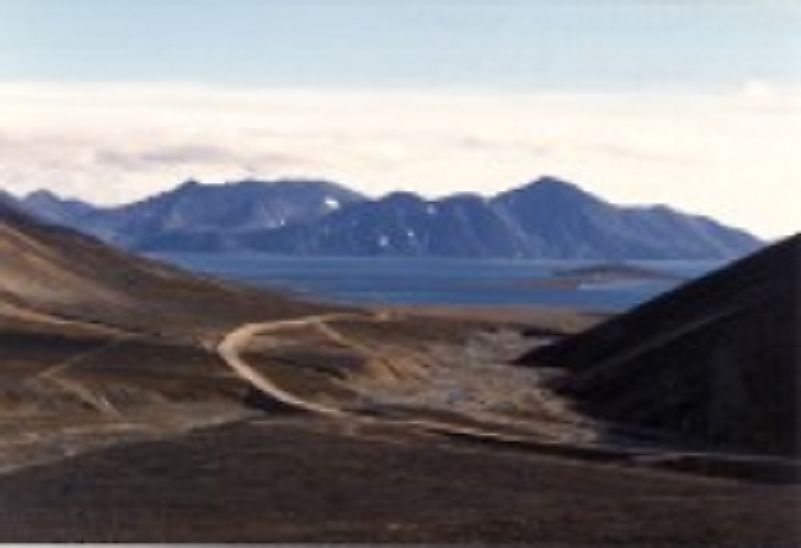The Biggest National Parks In Russia

Russia covers an area of 6,592,800 square miles and within that vast expanse are 40 UNESCO biosphere reserves, 41 national parks, and 101 nature reserves. This country is so large that it has 3 distinct climates: humid continental, subarctic, and subtropical.The list of ecological regions is also long, and ranges from temperate forests to grasslands and from tundra to desert. These diverse climates and landscapes provide home to around 266 mammal species and 780 bird species! Some of the biggest national parks in Russia are listed below.
Beringia, Russia's Largest National Park
The biggest national park in Russia is the Beringia National Park, which encompasses 11,788.6 square miles. Beringia is located in the most northeastern corner of the country, along the Bering Strait and touches the US border. It was established in January of 2013 and is the first US-Russian joint move to preserve wildlife. This park is a subarctic tundra region, a treeless marshy plain, with some moderately high mountains. Typical plants in this region include: moss, lichen, and dwarf willows. Animals commonly found here are: moose, wolves, lemmings, arctic fox, grizzly bear, and the endangered spoon-billed sandpiper.
Yugyd Va
With an area of 7,303.9 square miles, Yugyd Va is the second biggest Russian national park. It was created in April of 1994 to protect the taiga (also known as boreal) forests of the area. These forests are filled with pine and spruce trees and have temperatures just slightly below that of the tundra. In the park’s higher elevations, the landscape is tundra. The Yugyd Va is home to 180 bird species, 5 amphibian species, and 1 reptile species. Mammals are numerous and include: mountain hare, reindeer, otter, wolverine, and weasels.
Russian Arctic National Park
The third biggest park is the Russian Arctic which is comprised by an area of 5,505.8 square miles. This park was signed into being in June of 2009 and its protected area includes both land and Arctic Ocean. Some of the biggest inhabitants are the polar bears and gray and bowhead whales though there is a large breeding ground for walruses and seals as well. The second largest colony of birds in the world is located here.
Tunkinsky
Next on the list is the Tunkinsky National Park, established in 1991. Its 4,570.1 square miles are where several biomes come into contact. The taiga (previously mentioned), grassland, alpine forest, and lakes make up this park and provide beautiful, unique scenery that is unmatched elsewhere in the country. The park rises to glacier covered mountains and slopes down into glacial valleys. In between are hot springs, meadows, and waterfalls. Tunkinsky is home to such endangered animals as the snow leopard and the Asiatic wild dog, as well as 43 endangered species of endemic plants.
Other Massive National Parks in Russia
The list goes on to include Bikin (4,480.7 square miles), Prielbrusye (3,900.4 square miles), Chikoy (2,573.2 square miles), Anyuysky (1,657.8 square miles), Vodlozersky (1,652.5 square miles), and Shorsky (1,613.9 square miles).
Environmental Threats
Historically, Russian policies did not protect the environment because that was seen as an obstacle to growing the economy and improving industrialization efforts. As a result, the country has experienced deforestation, air pollution from an over reliance on fossil fuels, nuclear energy accidents and subsequent radiation contamination, water pollution, and erosion due to overgrazing livestock. Now, several animal species are critically endangered. In response, recent governments have invested in animal conservation efforts (particularly that of tigers) and written a Biodiversity Action Plan. As noted in the list above, several national parks have now been dedicated as well, in an attempt to conserve other wildlife.
The Biggest National Parks In Russia
| Rank | Name | Area |
|---|---|---|
| 1 | Beringia | 3,053,233 hectares (11,788.6 sq mi) |
| 2 | Yugyd Va | 1,891,700 hectares (7,303.9 sq mi) |
| 3 | Russian Arctic | 1,426,000 hectares (5,505.8 sq mi) |
| 4 | Tunkinsky | 1,183,662 hectares (4,570.1 sq mi) |
| 5 | Bikin | 1,160,500 hectares (4,480.7 sq mi) |
| 6 | Prielbrusye | 1,010,200 hectares (3,900.4 sq mi) |
| 7 | Chikoy | 666,468 hectares (2,573.2 sq mi) |
| 8 | Anyuysky | 429,370 hectares (1,657.8 sq mi) |
| 9 | Vodlozersky | 428,000 hectares (1,652.5 sq mi) |
| 10 | Shorsky | 418,000 hectares (1,613.9 sq mi) |











